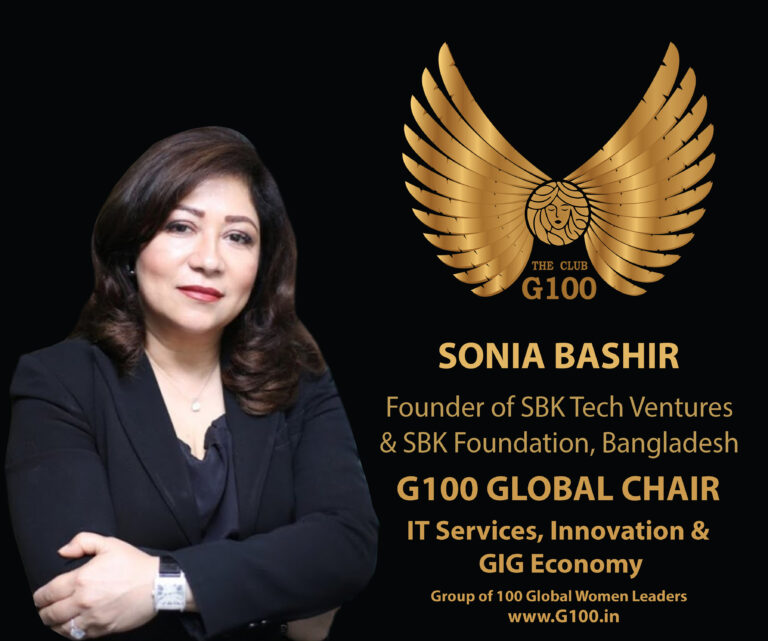Sonia Bashir Kabir
Sonia Bashir Kabir
She is the Founder of SBK Tech Ventures, a licensed Venture Capital Fund and the Founder of SBK Foundation, a not for profit which empowers rural communities with technology in Bangladesh.
She was earlier Managing Director of Microsoft for Bangladesh, Myanmar, Nepal Bhutan & Laos, where she also won the highly prestigious Founders award given by Bill Gates. Educated & Trained in Silicon Valley, Sonia lived for 20 years in the Valley and worked for Fortune 500 companies Sun Microsystems & Oracle, in addition to working with Microsoft and Dell.
Sonia is also currently serving as Vice Chair & Governing Council Member of United Nations Technology Bank appointed by the UN Secretary General; Board Member of UNESCO’s Mahatma Gandhi Institute for Education and Peace; Dell CXO Advisory Board member for Asia Pacific & Japan; Steering committee member, International Network for Government Science Advice (INGSA); BRAC University Bangladesh, board member; Banglalink, a Telecommunications company owned by VEON; IPDC, a Non Banking Financial Institution (NBFI) and Shakti Foundation for disadvantaged women, a Micro Finance Institution (MFI).
Recipient of many prestigious awards, Sonia was the first woman to receive the ICT Business Person of the Year Award from The Daily Star ICT Awards (biggest award platform in the country from the highest Selling English Daily); She was recognized as 1 of the 10 Sustainable Development Goals (SDG) pioneers globally by United Nations Global Compact and was featured for a week in Times Square (Broadway Street) with the other SDG pioneers.
Sonia advocates digital literacy and skills for women in Bangladesh to help them participate more fully in the IT workforce. Her foundation partnered with Young Bangla and established Tech Hubs in sixty-four districts of Bangladesh, with all the Tech Hubs being live now.
She says, “I dream of establishing 100,000 Tech Hubs – in all the villages in our country. I want to provide ‘assisted technology’ through community youth leaders to rural residents so that anyone can have access to the internet and technology – be it for an online medical or legal service, online shopping or e-learning.

